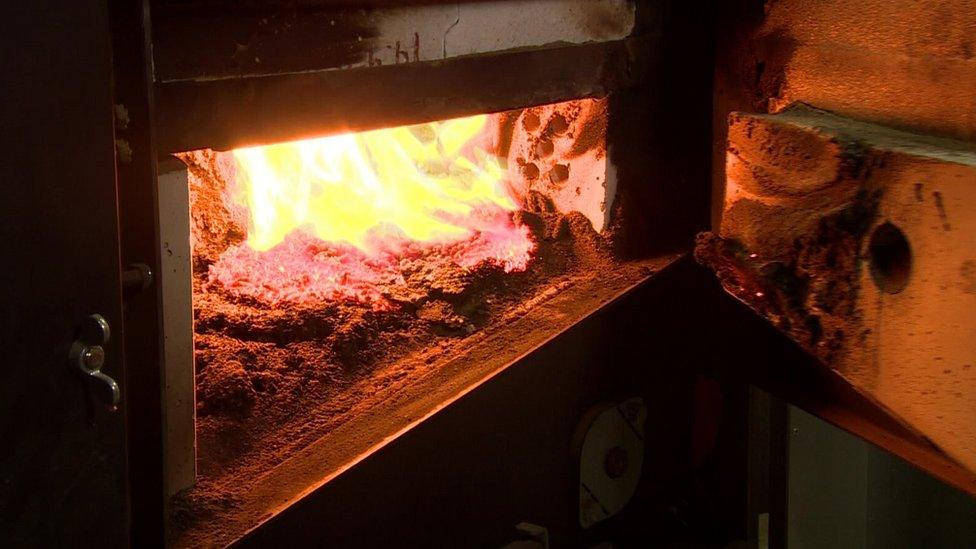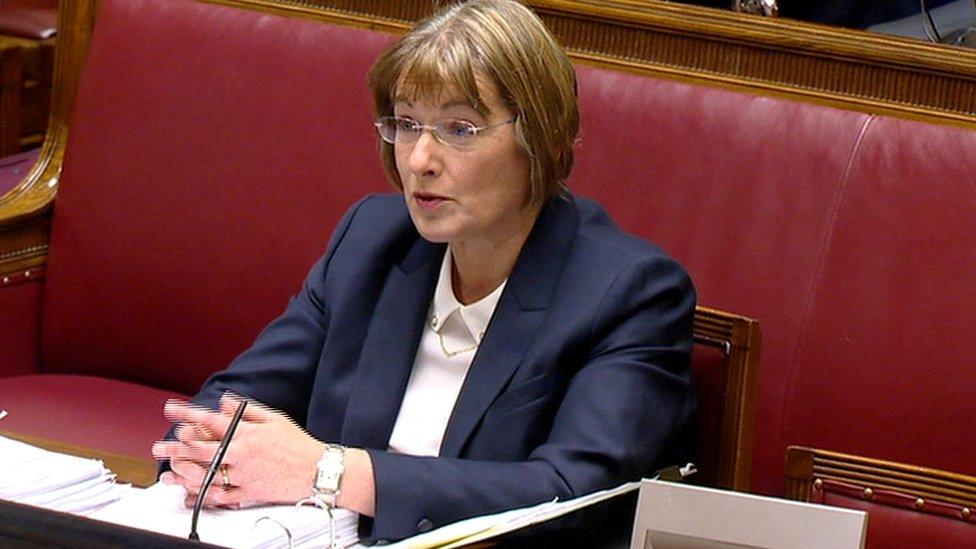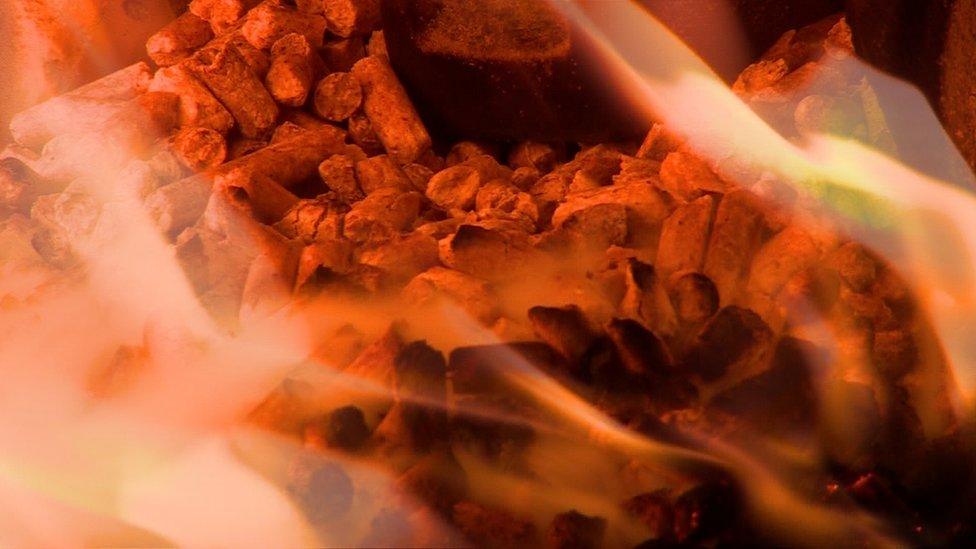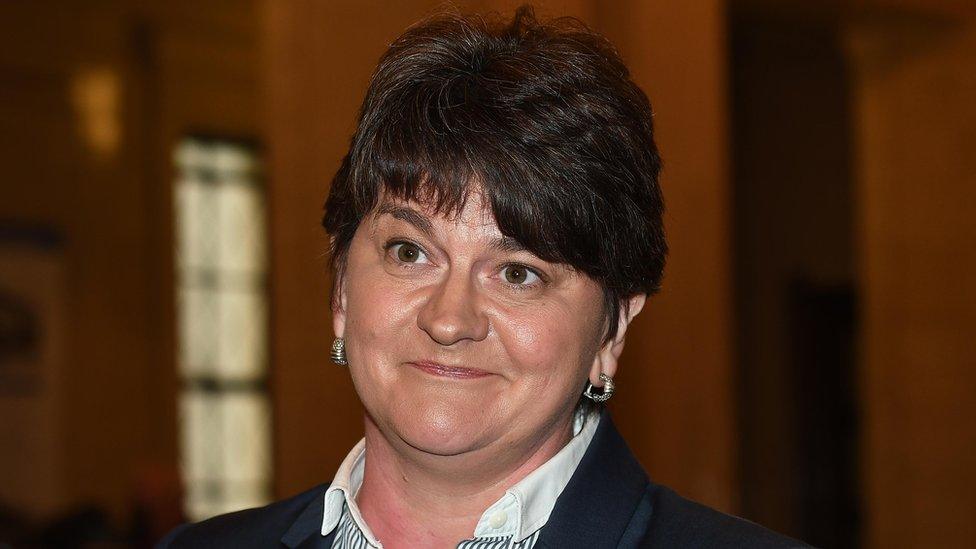RHI inquiry: Foster and adviser disagree on meetings
- Published

The RHI scheme offered financial incentives to encourage businesses to switch to using renewable fuels to generate heat
The Renewable Heat Incentive inquiry has heard former minister Arlene Foster and a senior civil servant had sharply diverging memories about a series of meetings.
The civil servant, Fiona Hepper, is testifying at the inquiry on Thursday.
In her written evidence to the inquiry, Mrs Foster talked about a submission she received from the energy team at the Department of Trade Enterprise and Investment (DETI) in June 2011.
She said it led her to believe that an ongoing subsidy scheme model - the Renewable Heat Incentive (RHI) scheme - gave the "highest potential heat output at the best value".
In fact it was one of two options up for consideration, the other being an up-front grants scheme or "Challenge Fund" that was in fact the better value option, but which was ultimately rejected.
Mrs Hepper was head of the energy division at DETI at the time and advised Mrs Foster.

Fiona Hepper said she stood by previous evidence she gave to the inquiry
Inquiry barrister David Scoffield said Mrs Foster's recollection "contrasts" with evidence Ms Hepper previously provided when she said she expressed no preference about the different schemes and left it up to the minister to decide.
Mrs Hepper said she stood by what she said, telling the inquiry that she has a "clear recollection" of the meeting she had with the minister at which the issue was discussed.
"I would hold to the information that I provided to the inquiry under oath," she added.
No note was taken of the meeting with Mrs Foster and inquiry chairman Sir Patrick Coghlin asked whether the differing versions of what happened underlines "the need for a memorandum or note, either by you, by her, by a private secretary".
Mrs Hepper agreed that "big lesson" is something "we will take away from this".
"Not very good public policy, is it?" Sir Patrick replied.
Submissions given to Mrs Foster in the spring and summer of 2011, outlining the details of the two options for the RHI scheme, had been based on a draft report by external consultants.
However, when their final report was received a month later, the projected costs of the two options had changed dramatically.

The public inquiry was set up last year to investigate the green energy scheme after costs spiralled
The cost of the ongoing subsidy scheme - which became the RHI scheme - was estimated to cost over £100m more than it had done in the report the previous month, meaning it cost significantly more than the other option.
Mrs Foster decided to go for the subsidy option on the basis of the draft report, rather than the final one.
The former DETI minister has said she would have "expected officials to draw any significant or material changes affecting my prior decision... directly to my attention", adding: "This was not done."
Ms Hepper accepted that what the minister has said "is factually correct" and the energy team did not include that crucial detail in the submission to her.
Ofgem warning
Later the inquiry heard that in mid-2012, the RHI scheme administrator Ofgem warned DETI not to go ahead with it without adopting cost controls similar to those adopted in Great Britain.
Mrs Hepper met Arlene Foster after the Ofgem warning.
The minister has told the inquiry she has no recollection of being clearly informed of the risks of proceeding without cost controls, and that if the issue had been raised "Ofgem's warning's must have been significantly downplayed".

Arlene Foster was the minister at the Department of Enterprise, Trade and Investment at the time the RHI scheme was approved
Mrs Hepper's earlier evidence was that the matter was fully discussed and the minister was made aware of the risks.
She said she has a clear recollection of the meeting, adding: "I don't believe it was downplayed in any way."
It has emerged that there are no written records of several important meetings on these issues.
Inquiry chair Sir Patrick Coghlin said he is trying to "clarify the quality of civil service decision-making" about the RHI scheme.
The RHI scheme was an initiative offering financial incentives to encourage businesses to switch to using renewable fuels to generate heat.
But critical flaws meant that its claimants could earn substantial returns, far greater than intended.
- Published20 February 2018

- Published7 November 2017

- Published7 November 2017

- Published23 October 2019
